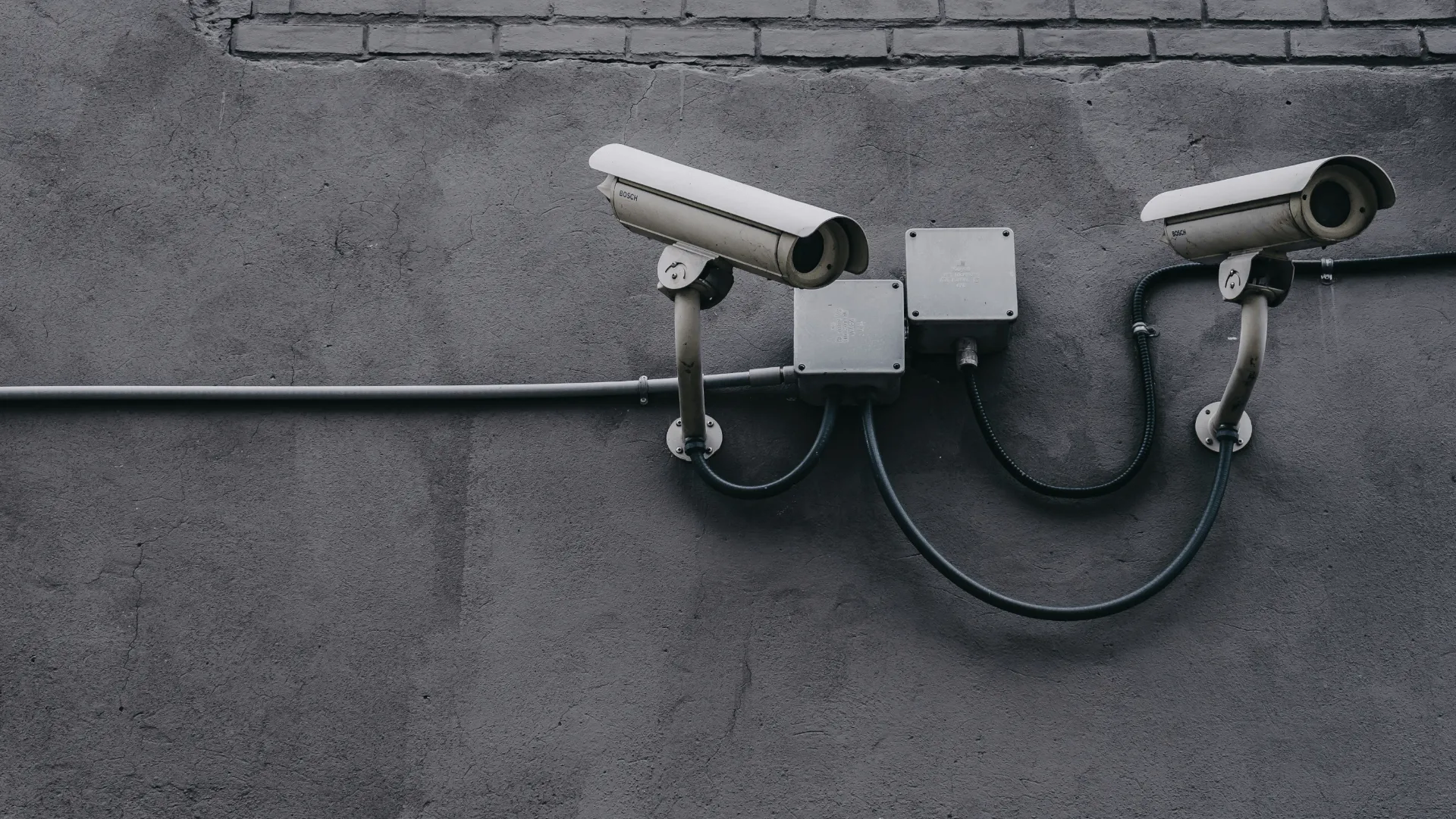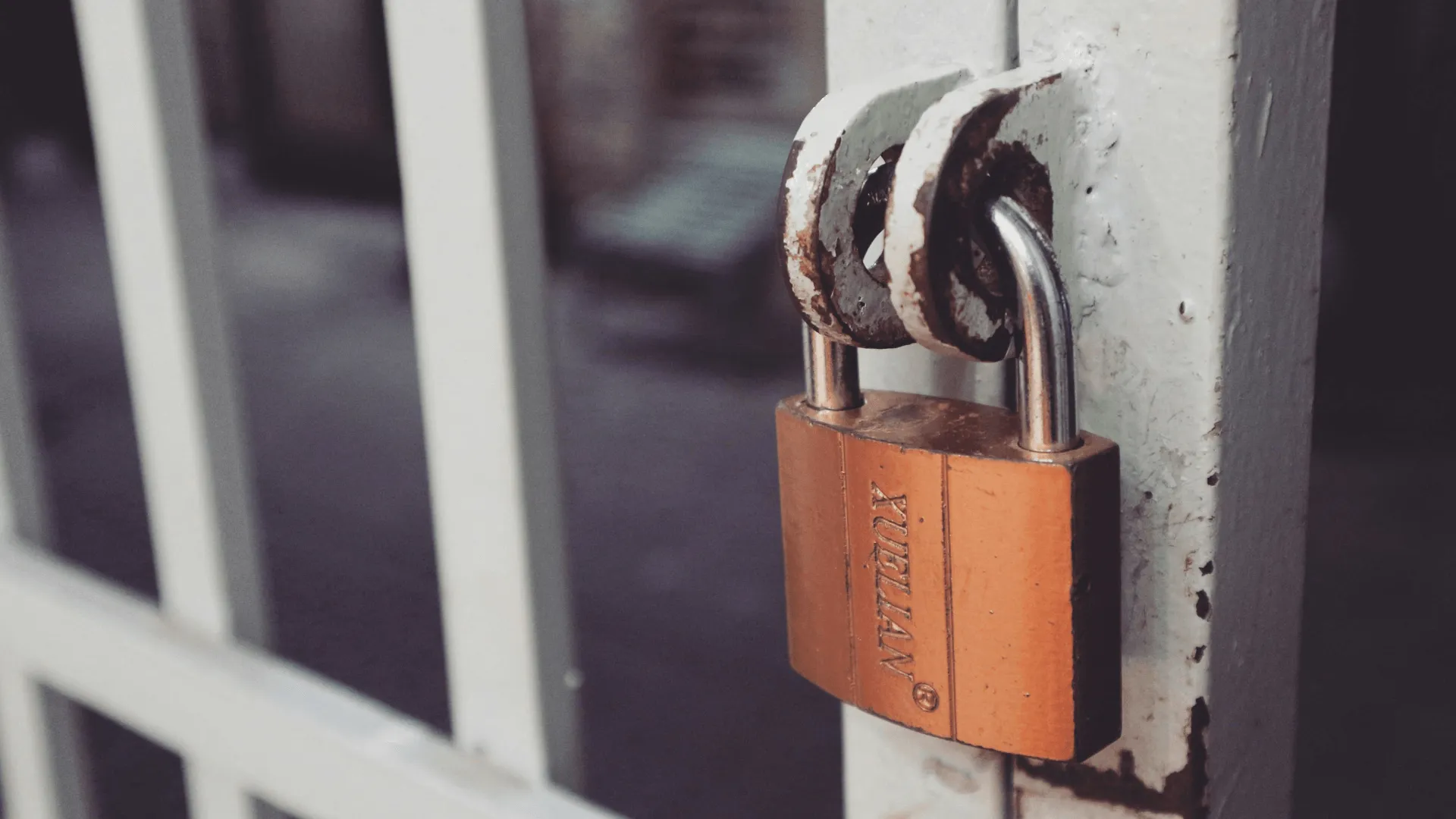I don’t have anything to hide, but I don’t have anything I want to show you either.
I saw this quote a long time ago, but it has stuck with me ever since. In real life, nobody would debate the purpose of living room curtains, even though most of us are not doing anything illegal in our living rooms. The desire for privacy is a natural one and does not imply that we are trying to hide something. Still, for some people, it seems like a foreign concept to protect their private data online, not only against hackers or malicious actors, but also big corporations and surveillance agencies. In this post, I want to motivate the need for good online privacy and share suggestions, resources, and general guidance on how we can achieve better online privacy.

Privacy matters!
To dissect the need for online privacy a little bit, let’s consider the data worth protecting. Beyond the surface level of our personal information associated with our online accounts (email addresses, phone numbers, birthdays, etc.), there is the data we produce online when using different services (who we interact with, likes, watch times, shared content, etc.). Already, this can reveal a lot about us as individuals. Even one level deeper, there is still metadata we leave as traces on the internet; abstract but abundant (IP addresses, geolocations, timestamps, device IDs, etc.). Connecting all this amount and variety of data across different platforms and accounts basically makes us transparent. The level of intimacy to which corporations could identify and analyze us is almost incomprehensibly deep.
This heap of data we leave behind online is very worth protecting because it is a fact that there are plenty of big tech companies and other actors who do not have our best interests in mind. Plenty of recent and less recent scandals have time and again proven that our data is being used and abused to our very disadvantage. Companies that provide services we use daily have been shown to manipulate us, our purchasing habits, political opinions, voting habits, personal relationships, careers, travel plans, and many more aspects of our lives. States have used online data to prosecute and discriminate against innocent people, and criminals are utilizing our data to scam or otherwise take economic advantage of us. Good online privacy means being able to make independent decisions, intellectual and economic freedom, and protection, not only online.

To stay private and safe, we could just quit, shut down all our devices, go for a long walk in the forest, and never enter the internet again. Maybe we should, but I can’t, and I’m sure you can’t either. Our lives are now inseparably connected with technology and the internet, and our jobs, education, personal relationships, and hobbies depend on it. Therefore, we need to take active measures, make conscious choices, learn new behaviors, and unlearn bad ones. This brings us to the point of this blog post: the big how, which I will elaborate on in the following sections.
DeGoogle your life
We use a variety of software and services daily; they make our lives easier, and some are even essential to our everyday activities, such as communication, shopping, transport, and more. Naturally, the services we rely on have a significant impact on our online privacy. Google and its variety of interconnected apps are increasingly present and becoming more essential for many people. The first step toward a more private online presence is to try and avoid these popular Google apps, such as Chrome, Gmail, Maps, and more.

Here is a short list of privacy-respecting choices to replace those Google apps:
- DuckDuckGo as a search engine (you can easily switch the default search engine in the settings of your browser)
- Brave Browser; the web browser is your gateway to the internet, so don’t give Google the key
- ProtonMail as your email provider
- ProtonCalendar as your calendar
- StandardNotes for notes
- OpenStreetMap instead of Google Maps
- Signal as a messenger
- Nextcloud as cloud storage
Generally, the Proton suite offers a nice selection of different apps to help you leave Google behind. However, putting all your eggs in the same basket makes you (again) heavily dependent on a single service provider.
Take smart choices
One-size-fits-all solutions are rare, and everyone has different needs. Lists of privacy-respecting or open-source apps are endless and don’t help you navigate the jungle of different options. The ability to assess and look out for certain important points when comparing software is much more crucial. For that reason, I will share some general, strategic advice:
- Avoid Google products - I’ve mentioned this before, but it bears emphasizing.
- Do your homework - Don’t take my, or anyone else’s, words as absolute truth. Think about what you want from the service and whether it can provide that. Inform yourself about the track record of the product and the company behind it. Explore and compare alternatives.
- Stay offline - If possible, use apps that are limited to offline usage. You can’t lose your data if it never leaves the device.
- Use Open Source - Prefer OSS (Open Source Software) over proprietary software; with the source code open to the public, it generally ensures that no shady practices are being done behind the scenes.
- Don’t be afraid to pay - If the product is free, you are the product. Paid services generally have an incentive to keep their customers happy and your data private and secure.
- Avoid ‘Log In With…’ buttons - Often, websites allow you to register or log in with your Google/Facebook/Apple/… account, which seems quick and convenient. It also often means that the new app has access to your Google account data and that Google keeps tabs on all other activity you do on the web. Don’t do it; rather, create a new account and expose as little personal information as you can.
- Keep track of your accounts - Switching or leaving apps and services is much easier when you have an overview of all your active accounts, associated emails, and passwords. Use a password manager (such as Bitwarden) to securely manage all your logins.
- Backup, back up, back-up - Always back up your important data. Mistakes happen; don’t let them impact you. It’s also much easier to quit a service when you know you have all its important data already securely backed up on your own device.
For privacy enthusiasts
If you are just beginning your online privacy journey, are more relaxed about the topic, or are not particularly tech-savvy, the next section of advice may not apply to you. However, for those eager to minimize their online footprint and become truly private and independent of the big tech monopolies, there are a few more tips I would like to share.

- Look for privacy-friendly frontends - Many popular platforms have alternative user-made privacy-friendly frontends, with which you can anonymously browse their content, without any tracking. While they occasionally break or disappear, an active user-base is often quick to fix or replace them!
- Use a VPN - With a VPN, you are shielded from your ISP and other actors trying to monitor your online activities. With some research, you can find a few trustworthy and affordable options, with plans and clients for all your devices.
- Encrypt DNS traffic - If you don’t use a VPN (or your VPN does not include DNS resolving), set up a privacy-focused DNS provider, it takes minutes to change on most devices and keeps your browsing habits private.
- Equip Browser Extensions - There are plenty of useful extensions available, such as blocking CDN trackers, auto-deleting cookies, and more, depending on your browser and browsing needs.
- Switch to Linux - Having control over your data begins with having control over your device. Especially in light of recent Windows developments, the Linux operating system is your best choice for staying secure and private.
- Ditch your smartphone - To little surprise, a smartphone is a significant liability, going wherever we go and permanently collecting data about us and our environment. Apart from simply turning it off or blocking as many (Google) services as possible, there is little we can do about it. For Android phone owners, there is the option of installing a privacy-friendly custom Android ROM, such as /e/OS or LineageOS. A (very radical) option open to everyone is to exchange the smartphone for a dumbphone.
- Stay secure - Good security measures also protect your privacy. Use two-factor authentication wherever it is offered. Use services that offer end-to-end encryption and advertise strong security policies.
- Quit social media - What is the point in protecting our privacy when we voluntarily give it up on social networks? Limiting the number of social networks we use, the amount of data we share, and the time we spend on them is essential. Quitting social media can have a liberating effect and, in the long run, benefits us in many ways.
Conclusion
The number of privacy-respecting service alternatives and measures I have presented so far is rather small. I have only recommended them without proving or motivating why they protect you more or handle your data more responsibly than others. However, anyone who takes the matter seriously can still use this post as a starting point and inspiration to get an idea of what aspects need to be considered and to try and find solutions and measures that fit them best.
One point I hope to have conveyed in this post is that, even when following countless measures and advice, privacy is never 100% protected. Switching devices, software, apps, and services will only do so much without the proper mindset accompanying it: be paranoid, be critical, be stubborn. Don’t fully rely on or blindly trust any single platform or company too much.
Lastly, I would like to share another quote (this time from myself):
The compromises in favor of privacy are often not sacrifices but blessings in disguise.
This journey of gradually adopting more and more privacy-respecting services and behavior patterns was challenging at the beginning. It was uncomfortable, exhausting, and I faced disapproval from friends and family. But after a short while, things went smoothly, and I realized that there is not much to miss out on social media and that my life works just as well as before, even without having the hottest new productivity apps installed. I feel happier, calmer, and the satisfaction of being in full control of my own data and technology. Tech companies no longer dictate my life. So if you decide to join me on this journey, don’t despair at the overwhelming task at the beginning; stick with it, and it will be worth the effort!

Additional resources
At the end, I would like to provide a short list of additional resources and starting points for people looking to delve deeper into the topic. There, you can find more in-depth tips, compare software alternatives, or look for something specific that I may have failed to mention.
- r/privacy on Reddit, all things privacy related
- r/degoogle on Reddit, people trying to keep Google out of their lives
- privacytools.io is a very thorough list of all kinds of useful tools and services
- The Crypto Paper, a thorough step-by-step analysis of privacy measures on different levels (long read)
- privacyguides.org, another list of all kinds of good tools
- F-Droid, a free open source android app store